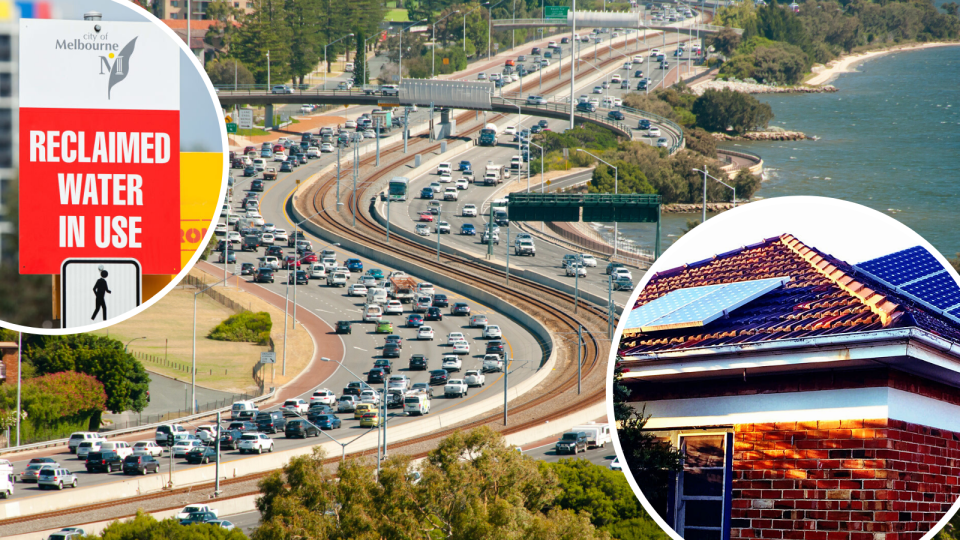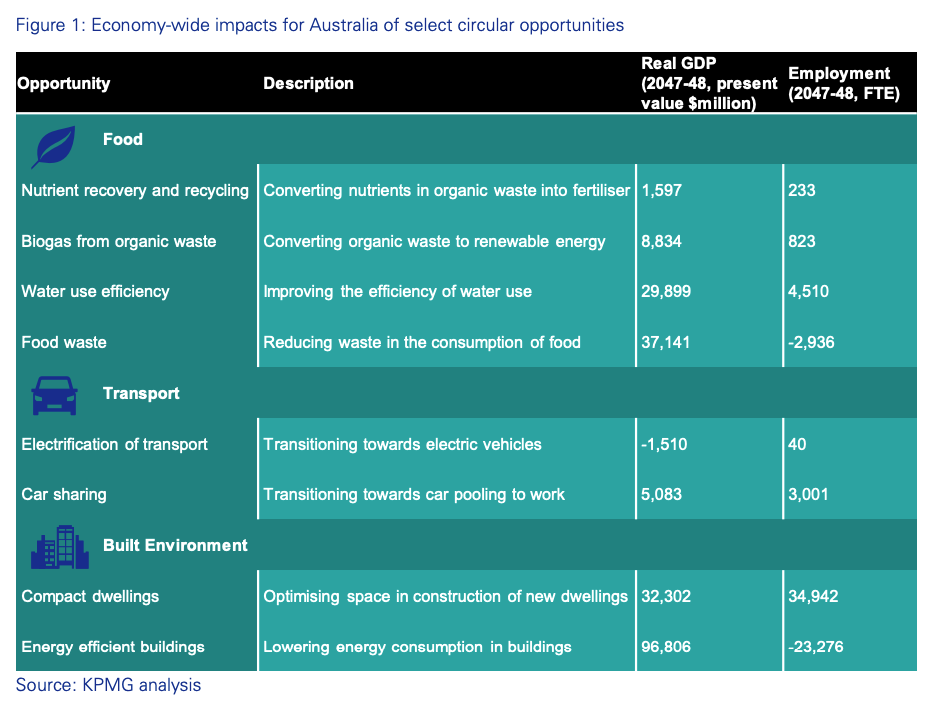Unlocking these parts of the economy could create $210 billion, 17,000 jobs

Reducing waste and maximising resources in certain areas of Australia’s economy could save Australia $210 billion in GDP by 2047 and create thousands of new jobs, according to a new report.
A ‘circular economy’ is one where resources, products and commodities are kept ‘in the loop’ for as long as possible to maximise their use, extend their lifespan to increase productivity of resources and reduce waste.
The new report by KPMG and commissioned by CSIRO claims transitioning to such an economy in Australia would have massive payoffs and potentially help the country recover from coronavirus.
Also read: Health vs Economy: When should the government ease restrictions?
Also read: 1 in 5 Aussies could lose jobs in ‘worst economic downturn in history’
Moving to a circular economy in Australia would involve sustainability measures in the areas of food, transport and the environment, such as water efficiency, electric transport and energy efficient buildings. Within five years, such measures could see us save $26 billion, the modelling estimates.
According to the joint report, there are eight key “circular opportunities” that would not only help minimise environmental damage but save money and create employment.

For example, reducing water leakage and implementing water recycling processes would see substantial savings in the amount of water saved.
Cutting down food waste would reduce household expenditure, while transitioning to electric-powered vehicles would see long-term, ongoing savings in fuel costs.
Car sharing would be an opportunity to utilise each existing car, the report said, and multiple individuals sharing one car on their commute to and from work would “directly result in lower costs of fuel, parking and car maintenance per individual”.
“We find that opportunities such as energy efficiency in dwellings and food waste reductions present the greatest impact in dollar terms, in part, due to the importance of these sectors in the Australian economy.”
The savings are likely to be higher than expected, too: KPMG economist and report author George Verikios said the estimations in the report were “likely … a conservative estimate of the impacts of a move towards a circular economy”.
“Although we have considered a broad range of sectors and industries that encompass the key areas of economic activity in Australia, our list is by no means exhaustive and only identifies areas where the circular opportunities are most viable,” he said.
Productivity on the agenda
KPMG chief economist Brendan Rynne said Australia will need to maximise productivity in a post-coronavirus era.
“While the economic benefits of the circular economy... may seem modest given the current size of the government’s stimulus package, this sort of innovation and greater productivity is exactly what will be needed by Australia going forward,” he said.
“We are facing unprecedented debt levels and focusing on higher taxes and reduced spending will not be enough.
“Greater productivity is the key to repaying this debt and more efficient and less wasteful production techniques as shown by this report on the circular economy could be an important part of that.”
Australia’s longest-serving treasurer Peter Costello has been an advocate for increasing productivity as a way to boost Australia’s economy, and current treasurer Josh Frydenberg has also echoed these sentiments.
Make your money work with Yahoo Finance’s daily newsletter. Sign up here and stay on top of the latest money, news and tech news.
Follow Yahoo Finance Australia on Facebook, Twitter, Instagram and LinkedIn.

 Yahoo Finance
Yahoo Finance 
